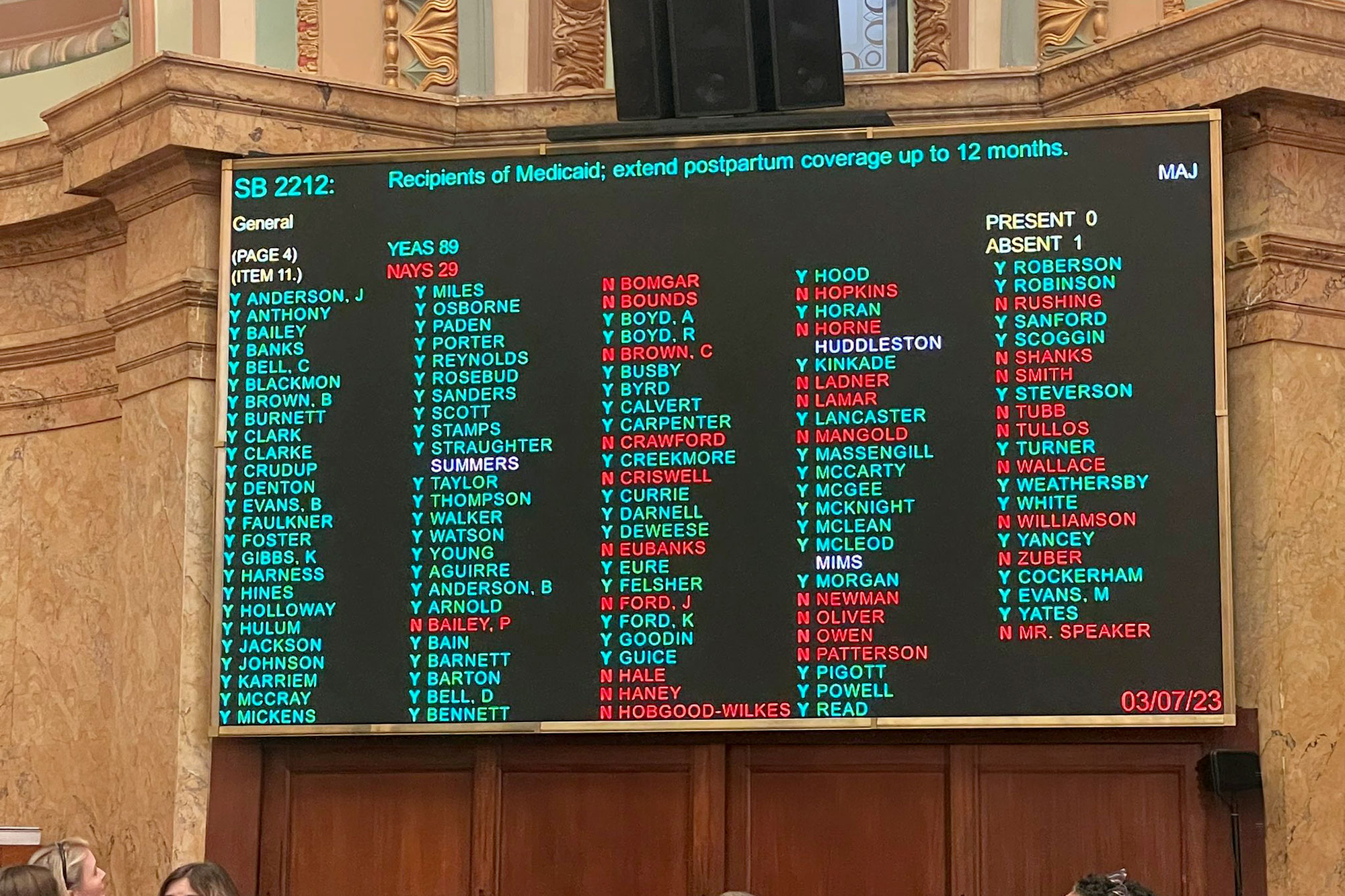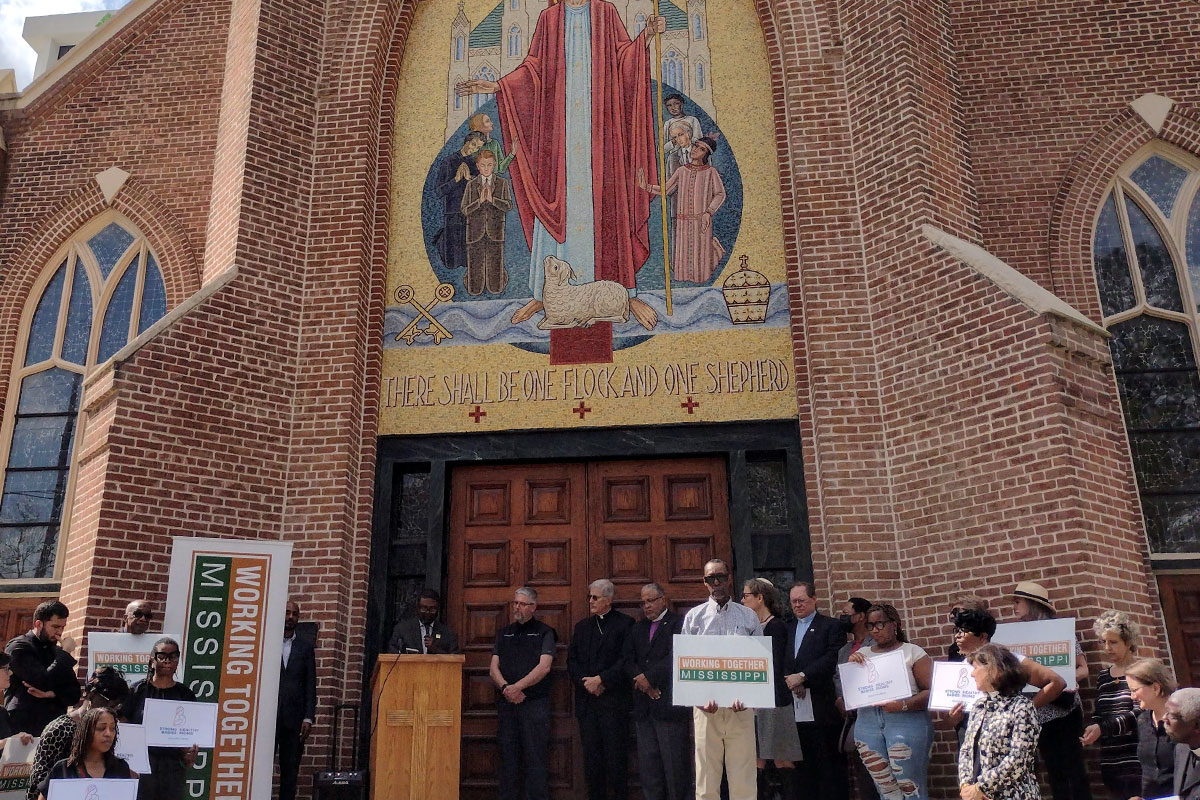On March 7, 2023, the Mississippi House of Representatives passed Senate Bill 2212 to extend postpartum Medicaid coverage for new mothers to one year after birth, and it now goes to Gov. Tate Reeves to sign into law. Currently, most new mothers lose Medicaid coverage after 60 days, before many fatal or life-altering complications occur. This simple change will save the lives of mothers and improve the health of children at a minimal cost to Mississippi taxpayers.
As Mississippi’s two Catholic bishops, we represent more than 100,000 parishioners across 120 parishes in the dioceses of Jackson and Biloxi. Last Monday, we joined Protestant and Jewish clergy on the steps of St. Peter’s Cathedral in downtown Jackson to call upon state leaders to preserve Medicaid coverage for new mothers for a full year after giving birth.

We stood united as members of Working Together Mississippi, a statewide organization of religious institutions and nonprofits that find common cause to strengthen Mississippi’s families and communities. We have come together from different races, faiths and backgrounds, and our religious traditions and personal beliefs diverge on many issues, including the right to abortion. But we are in complete agreement on the necessity of postpartum health care for new mothers.
‘Protect the Life and Health of Mothers and Children’
In the wake of the Dobbs decision, we feel that Catholic voices are especially important on issues of maternal and child health. Our faith affirms the value of every human life, and we have supported the Legislature’s past actions to protect the lives of unborn children. However, the commitment to life must not end at birth. We believe that access to affordable health care is a fundamental human right, one that is necessary for the flourishing of families and communities.
Through our parishes and the work of Catholic Charities in both of our dioceses, we witness the human suffering that lack of medical care causes. It is especially heartbreaking when health care is out of reach at the precious and vulnerable period when new life is created.
Our state has the highest rate of infant mortality in the country, while the mortality rate for new mothers is among the highest and is rising sharply. Racial disparities are also growing wider. Pregnancy-related deaths are four times more likely among Black women than white women in Mississippi. Medical experts have said that 80% of these deaths could have been prevented with access to proper health care. As Mississippi prepares for an additional 5,000 births a year due to the Dobbs decision, these tragic statistics would have likely grown worse without immediate action to expand access to affordable maternal health care.

Healthy mothers are better able to raise healthy children. Many postpartum health problems, including depression, strike in the critical first year after birth, when an infant’s brain size doubles. Mothers who can receive treatment for chronic conditions such as diabetes are less likely to experience problems in future pregnancies.
We are grateful that Gov. Reeves has given his public support to the 12-month extension the House passed this week, and we look forward to celebrating when he signs it into law, knowing that Mississippi will then be that much safer for new mothers and their children.
We pray for our state’s leaders, and we pray that they will continue to act to protect the life and health of mothers and children.
This MFP Voices essay does not necessarily represent the views of the Mississippi Journalism and Education Group, the Mississippi Free Press, its staff or board members. To submit an opinion for the MFP Voices section, send up to 1,200 words and sources fact-checking the included information to azia@mississippifreepress.org. We welcome a wide variety of viewpoints.





